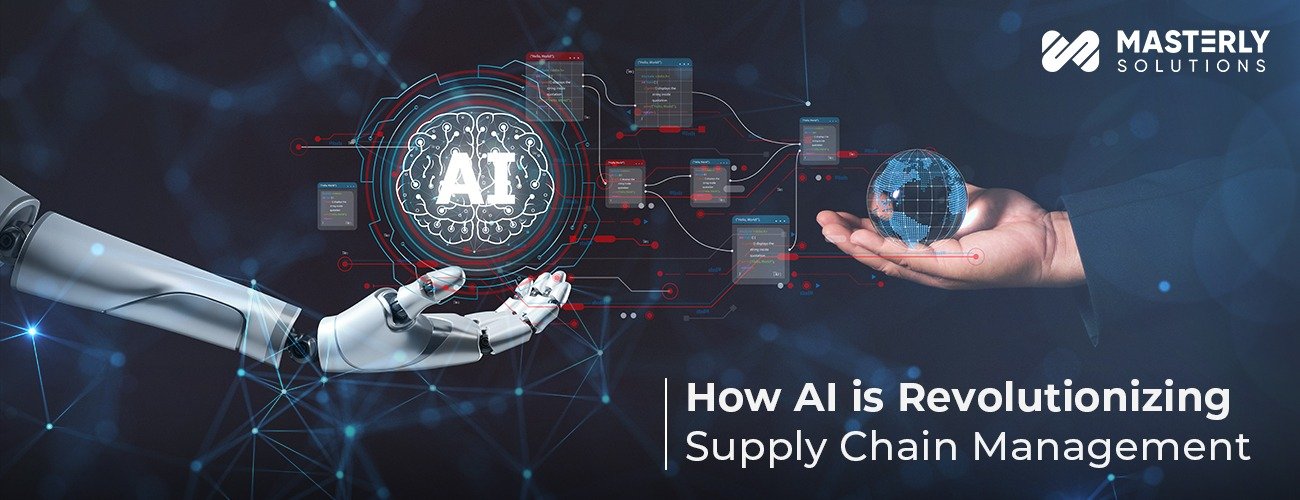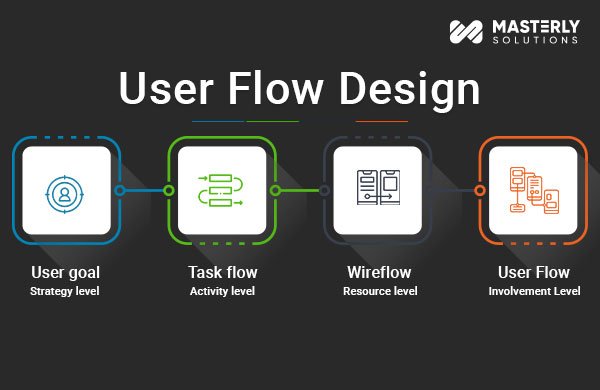
In the fast-paced world of logistics and supply chain management, the advent of artificial intelligence (AI) has emerged as a game-changer. With the global supply chain facing unprecedented challenges, from fluctuating demand to supply disruptions, AI-driven solutions offer a beacon of efficiency and innovation. At Masterly Solutions, At the forefront of AI integration into supply chain operations, we lead the charge in driving digital transformation, enhancing resilience, and optimizing performance.
Table of Contents
The AI Transformation in Supply Chains
AI in Supply Chain Management: AI technologies are transforming traditional supply chains into dynamic, responsive, and interconnected systems. By leveraging AI, companies can predict market changes, optimize logistics, and enhance inventory management with unprecedented precision.
Supply Chain AI Trends: The trend towards digitalization has accelerated, with AI logistics and supply chain solutions leading the charge. From machine learning algorithms that forecast demand to AI-driven robotics in warehouses, technology is reshaping the industry.
Machine Learning in Supply Chain: At the core of AI’s impact is machine learning. This technology analyses historical data and ongoing operations to identify patterns, enabling predictive analytics in supply chain decision-making. It goes beyond responding to the market; it’s about foreseeing and predicting its actions.
Implementing AI for Enhanced Supply Chain Efficiency
AI Supply Chain Optimization: Our approach to integrating AI focuses on optimizing every link in the supply chain. From utilizing AI for inventory management to ensuring optimal supply chain efficiency, our solutions are crafted to minimize waste, cut costs, and enhance delivery times. Digital Transformation in Supply Chain: The journey towards a fully digital supply chain is complex.
Case Studies of AI in Supply Chain: From retail titans streamlining supply chains to manufacturing firms minimizing production delays, success stories proliferate through the strategic use of AI applications. These cases highlight the tangible benefits of AI, including reduced operational costs and improved customer satisfaction.
Geographic and Industry-Specific Applications
Revolutionizing Healthcare Supply Chain Management with AI: Ensuring timely delivery of crucial supplies, AI manages inventory with life-saving precision in the healthcare sector.
Transforming Manufacturing Supply Chains with AI Applications: Manufacturers harness AI for predictive maintenance, minimizing downtime and ensuring seamless supply chain operations.
The Future of AI-Driven Supply Chains
The pivotal role of AI is undeniable as we navigate the digital future of supply chain management. As AI technologies continue to evolve, their potential to transform supply chains grows. At Masterly Solutions, we’re devoted to catalyzing this transformation. Beyond tackling present challenges, our AI-driven supply chain solutions pave the path for future triumphs.
We have a clear vision: leveraging the power of AI to revolutionize supply chain management. Our goal is to provide seamless software experiences that enhance efficiency, resilience, and foster innovation. Join us on this journey and discover how AI can transform your supply chain operations.


